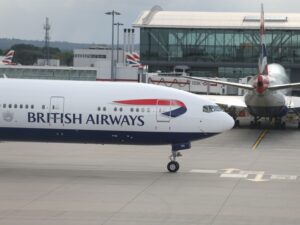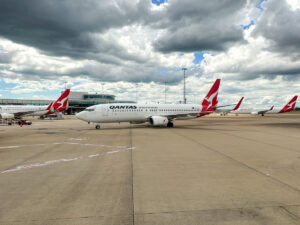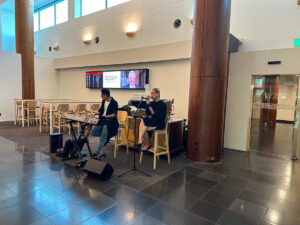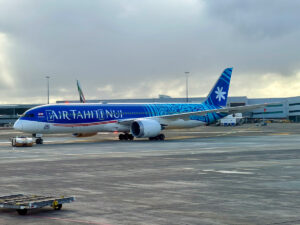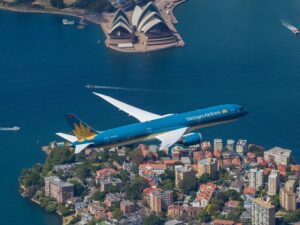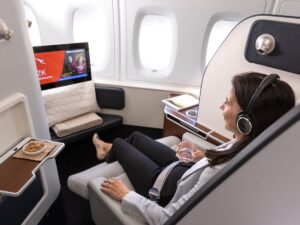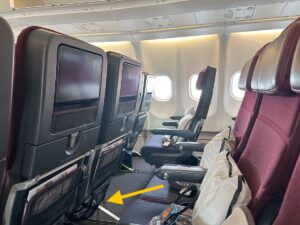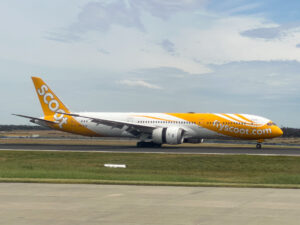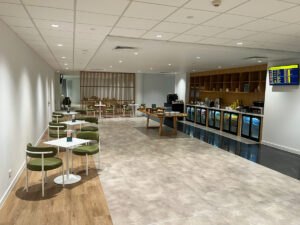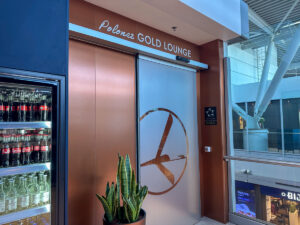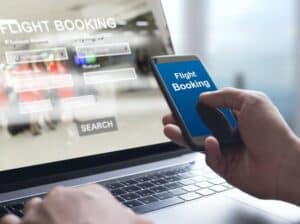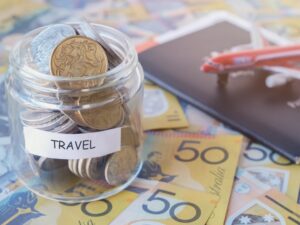
Have you ever noticed when booking a flight, hotel or rental car online that you’re asked whether you’re travelling for work?
This data is useful information for travel companies and booking agencies, as it helps them understand their customers better and tailor the booking experience. But what exactly happens when you select “travelling for work”, and does it make any difference to the price?
Booking.com
One large booking website that asks this is Booking.com, which has an optional “I’m travelling for work” checkbox you can select when searching.

There are some practical reasons this might be useful for someone using Booking.com to make a hotel booking. For example, governments in cities like Frankfurt, Germany charge a small nightly “tourist tax” to leisure travellers. This tax is not levied on business travellers, so Booking.com’s pricing reflects this.
In our comparison below, the image on the right side shows the results on Booking.com when “I’m travelling for work is selected”:
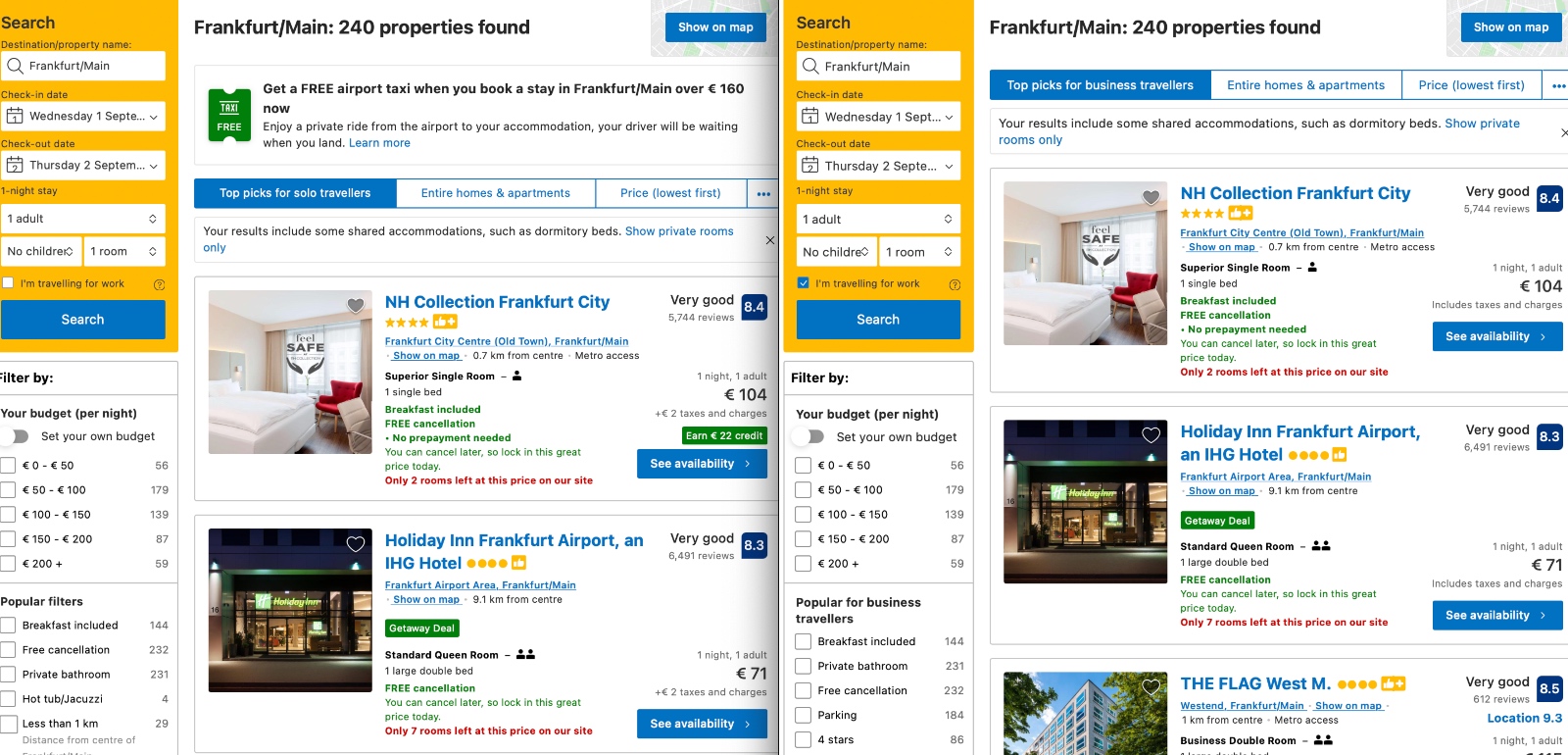
Otherwise, the prices shown for leisure and business travellers are more or less identical. However, there are some instances where this is not the case.
We found an example of a hotel in Auckland where the price was lower if “I’m travelling for work” was not selected on Booking.com. In addition, people not booking for work were being offered a Booking.com credit, while those who said they’re travelling for work are not. (This is also seen in the Frankfurt example above).
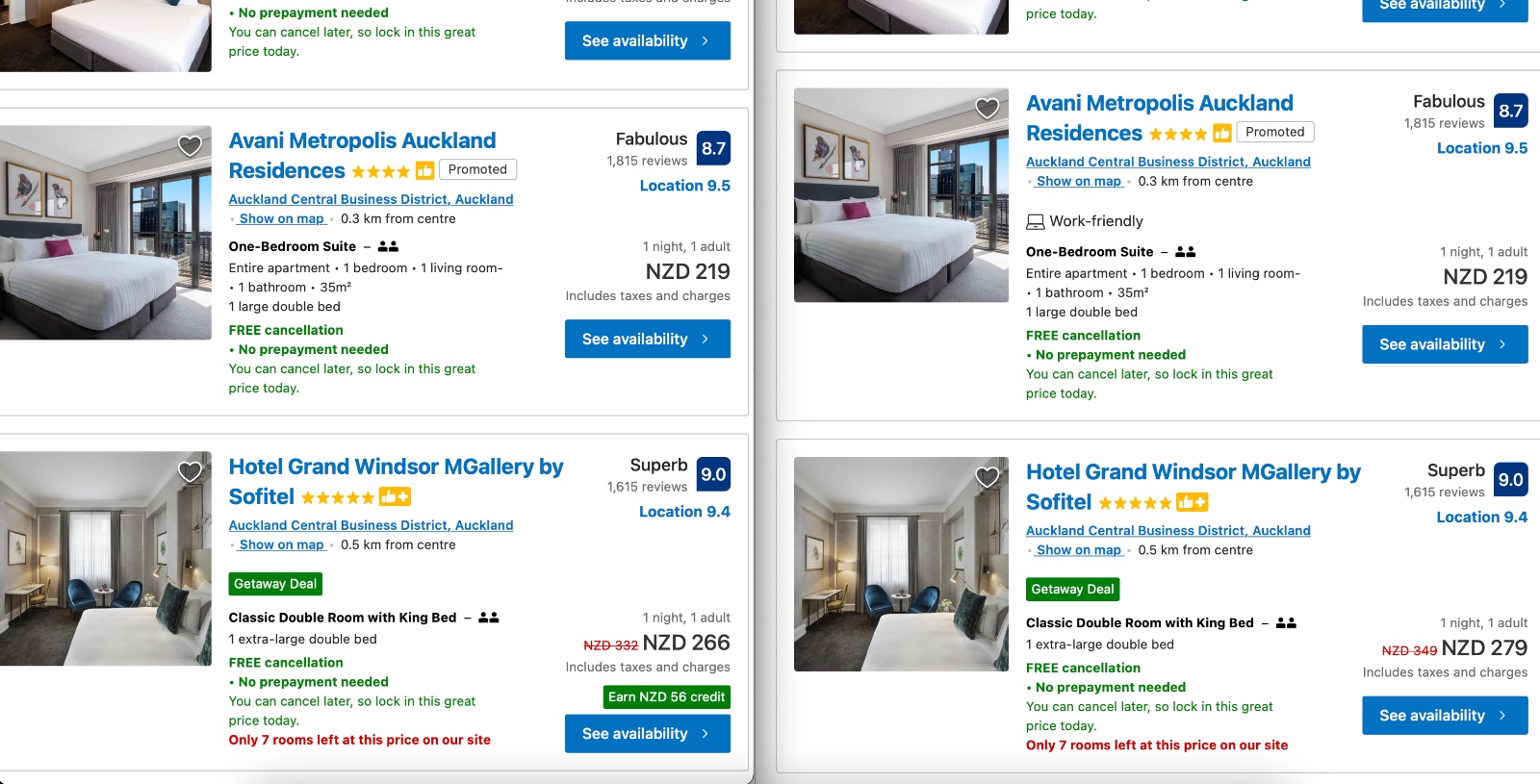
There are a few other minor differences. For example, Booking.com shows some hotels as being “work-friendly” when the customer says they’re booking a work trip. And there are some differences in the featured amenities – for example, “private parking” was shown for one hotel as a popular facility to people booking for leisure, but not business.
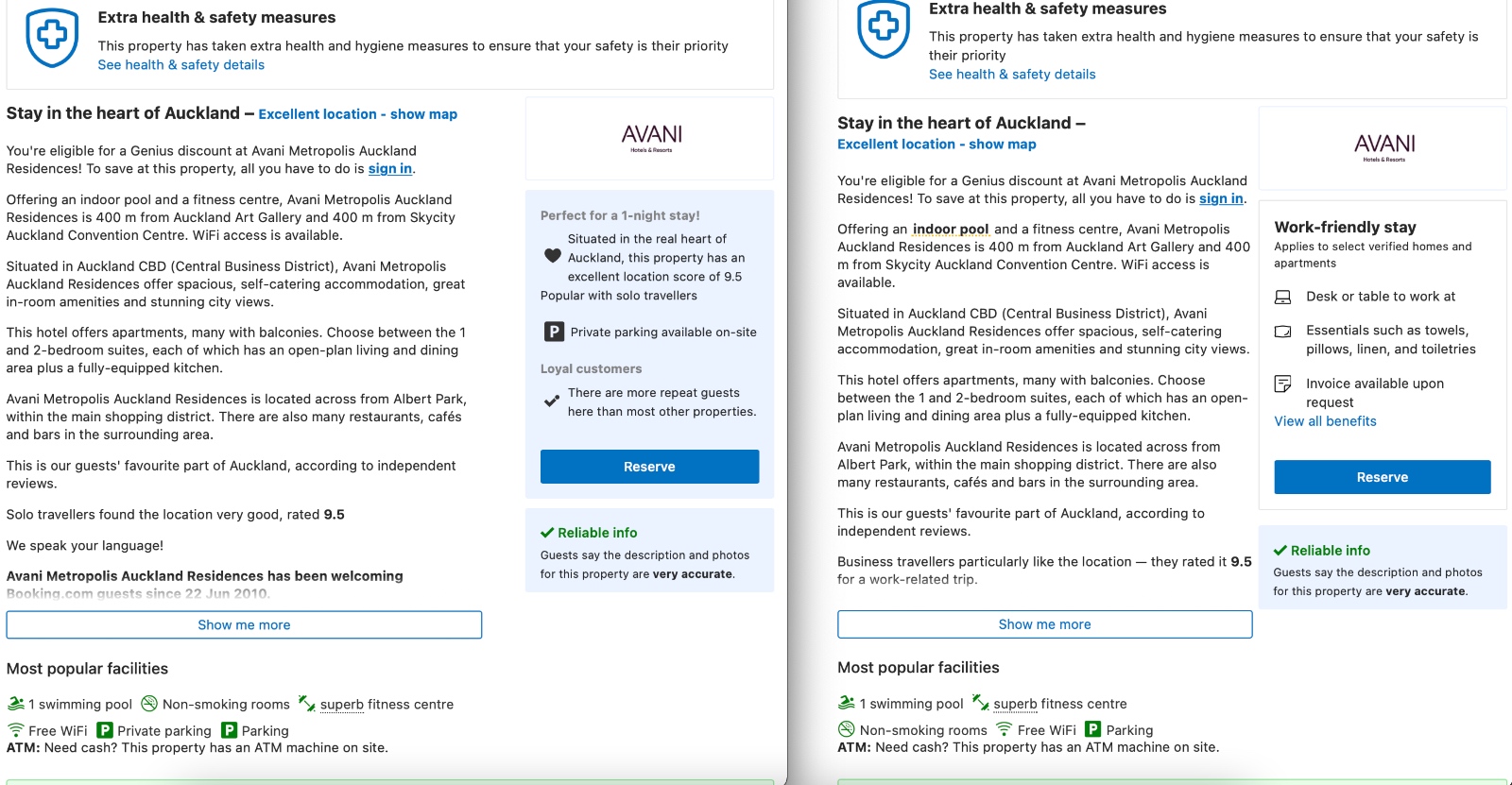
In the Frankfurt example above, customers booking for leisure trips were being offered a free airport taxi shuttle when booking a hotel room over a certain value. This was not offered to business travellers doing an identical search for hotel rooms.
We also found that business travellers were offered the option to purchase a carbon offset for $2 at the time of booking, while this was not offered to leisure travellers.
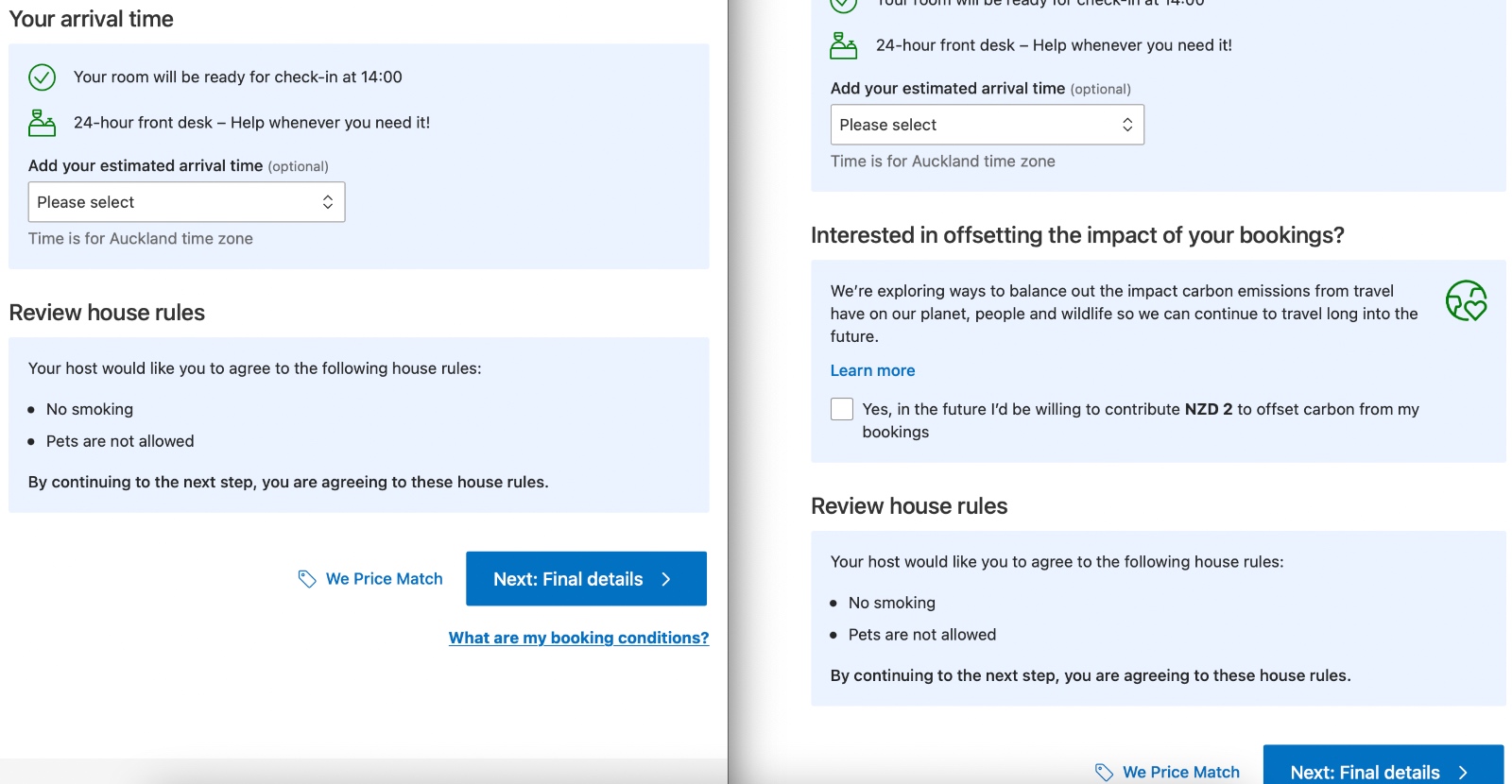
What about other websites?
The Accor website is another which asks if you’re travelling for business or leisure while making a hotel booking online. This question is optional, and it’s only asked at the final stage of the booking process – so it shouldn’t affect the price of the room. Perhaps Accor simply collects this information for market research and/or passes on the information to the property to help them tailor their guests’ stays.
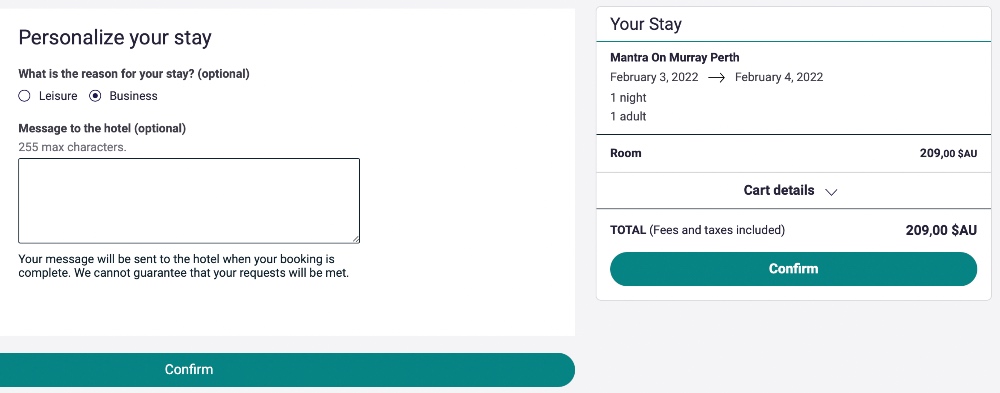
Some other websites try to collect this information in more subtle ways. For example, the Air France and KLM websites give customers an option to select “I want to book with a bluebiz or corporate contract”.
Operating special loyalty programs or offering discounts to corporate travellers is another way businesses can distinguish between business and leisure travellers. For example, Qantas Business Rewards members are encouraged to book flights through Qantas Business Rewards to access their discounts.
Price discrimination towards business travellers
It’s no secret that most airlines – and many other travel businesses that aren’t airlines – practice price discrimination. In fact, it’s feasible that no two passengers on a given flight have paid the same price for their ticket. There are just so many different possible combinations of routings, fare classes and prices.
But it’s usually not quite as overt as charging two different prices for the same product to business and leisure travellers. Instead, airlines typically charge more for the types of tickets they know business travellers are more likely to buy. This could include tickets with greater flexibility, tickets purchased closer to the date of travel and round-trip tickets with a short turnaround at the destination.
Airlines know that leisure travellers are more likely to book further in advance (although COVID-19 has skewed this), require less flexible tickets and are more likely to stay at their destination over a weekend. That’s why the cheapest tickets often need to be booked well in advance and may have minimum stay requirements (e.g. “must stay at the destination at least 3 nights and/or at least one Saturday night”).
Meanwhile, there have been examples of car rental companies quoting higher prices to loyalty program members when logged into their accounts.
In more recent times, we’ve also seen some travel companies charge less to customers booking on a mobile device.
As you can see, many travel companies put a lot of effort into trying to distinguish between business and leisure travellers without actually asking them. It’s often, but not always, so they can charge more to business travellers (who they assume are prepared to pay more).
So, if you voluntarily tell a booking website that you’re travelling for work, it’s unlikely you’ll be offered a lower price. Unless you’re booking a hotel in Frankfurt.
